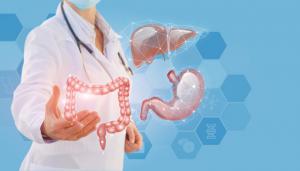What causes colorectal cancer? by Dr. Parameshwara C M, Chief Surgeon at SIICP Bangalore
Age and lifestyle are the main factors that cause colorectal cancer.
BANGALORE, KARNATAKA, INDIA, January 17, 2019 /EINPresswire.com/ -- Some of the recent studies have shown that a diet with a low fibre and high-fat content can lead to colorectal cancer, which is a common trait of western fast food. Apart from these, drinking water less than the recommended amount can also lead to the deterioration of natural bowel system and induce the development of polyps. Age also plays a crucial role, as more than 90% of the cases of colorectal cancer are encountered in people over the age of 50 years.What are the symptoms?
At times, people may not see any symptoms during the early stage of colorectal cancer or they may experience some changes in their bowel habits. The symptoms of rectal cancer include diarrhea or constipation constantly occurring for nearly four weeks or more, rectal bleeding or blood in stool, abdominal pain, stomach cramps, or gastritis. Colorectal cancer can also co-exist with hemorrhoids or fissure. The affected person has the feeling that bowel doesn’t empty properly. These adversities further lead to weakness, fatigue and weight loss. The intensity of these symptoms also varies depending upon the stage of cancer and its location in the body.
If patients experience intermittent abdominal pain, irregular bowel movements, loss of weight and passage of blood during defecation, they should seek a doctor’s help.
What are the other types of digestive diseases?
Diseases of the digestive system can affect the whole body if not addressed in time with proper treatment or medical counselling. Some of the common digestive diseases include GERD, gall stones, Crohn’s disease, ulcerative colitis, irritable bowel syndrome, haemorrhoids, etc. Here are some of the most common problems:
Irritable bowel syndrome (IBS): Repetitive stomach pain or irritating bowel for a long time can be a symptom of irritable bowel syndrome. Generally identified with symptoms like chronic constipation, diarrhoea, or bloating, IBS is a very common disease among 10-15% of the world’s population.
Gallstones: These are hard deposits in the gallbladder, and are usually a result of excessive cholesterol or waste in bile. Medication or surgery is the only solution for this disease.
Gastroesophageal reflux disease (GERD): GERD is one of the most common digestive diseases that is often characterised as burning pain in the middle of the chest or upper abdomen. Commonly named as ‘heartburn’, it occurs when stomach acids back up into oesophagus creating an acid reflux. Doctors usually recommend antacids and analgesics.
Ulcerative colitis: A celiac disease that’s related to gluten sensitivity, ulcerative colitis causes bowel inflammation, mainly in the large intestine.
Haemorrhoids: These result in inflammation of the blood vessels in the digestive tract and blood in the stool.
Apart from these, the formation of polyps under uncommon health conditions may lead to dreaded diseases like stomach cancer, liver cancer, pancreatic cancer and colorectal cancer.
Busy lifestyle and irregular food habits have severely impacted human health. India, in particular, has encountered an increase in digestive diseases over years.
Original source: what causes colo-rectal cancer?
Giny Attri
Smiles IICP Hospital, Bangalore
email us here
+91 92679 56193
Visit us on social media:
Facebook
Twitter
LinkedIn

